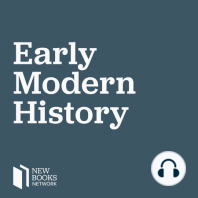67 min listen

He Bian, "Know Your Remedies: Pharmacy and Culture in Early Modern China" (Princeton UP, 2020)
He Bian, "Know Your Remedies: Pharmacy and Culture in Early Modern China" (Princeton UP, 2020)
ratings:
Length:
84 minutes
Released:
Jul 2, 2020
Format:
Podcast episode
Description
He Bian’s new book Know Your Remedies: Pharmacy and Culture in Early Modern China (Princeton University Press, 2020) is a beautiful cultural history of pharmacy in early modern China. This trans-dynastic book looks at how Chinese approaches to knowledge changed during the Ming and Qing as state-commissioned pharmacopeias dwindled, amateur investigations into the knowledge of things soared, and, ultimately, as natural history was de-medicalized, all while commercialization, monetization, long-distance trade, and empire flourished. This exceptionally rich and intimately text-based study introduces readers to a number of fascinating bencao (materia media), makes a compelling case for studying Chinese history through the lens of pharmacy, and demonstrates that Chinese pharmacy itself has a rich and vibrant history—all with stunning ease. This is both an essential and a joyful read for China historians, while still accessible for non-specialists interested in reading about the early modern world, medicine, the history of knowledge, and stories of strange drugs and the even stranger men who dispensed them.
Sarah Bramao-Ramos is a PhD candidate in History and East Asian Languages at Harvard University. She is interested in book history, early modern translation, and anything involving a kesike.
Learn more about your ad choices. Visit megaphone.fm/adchoices
Sarah Bramao-Ramos is a PhD candidate in History and East Asian Languages at Harvard University. She is interested in book history, early modern translation, and anything involving a kesike.
Learn more about your ad choices. Visit megaphone.fm/adchoices
Released:
Jul 2, 2020
Format:
Podcast episode
Titles in the series (100)
Daniela Bleichmar, “Visible Empire: Botanical Expeditions and Visual Culture in the Hispanic Enlightenment” (University of Chicago Press, 2012): Daniela Bleichmar‘s new book is a story about 12,000 images. In Visible Empire: Botanical Expeditions and Visual Culture in the Hispanic Enlightenment (University of Chicago Press, 2012), Bleichmar uses this vast (and gorgeous) archive of botanical ima... by New Books in Early Modern History